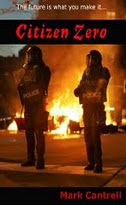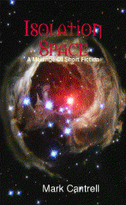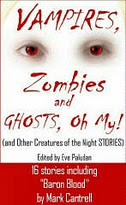Do unto others as you would have done unto you
The ongoing saga of conflict and oppression is a tragedy for the Palestinian people, but it is also a tragedy for Israel; one that keeps it incarcerated in the dark shadows of the past, writes Mark Cantrell
Will the Holocaust never end? Will Israel ever crawl clear of the shadow of those infernal chimneys belching out human ash? Will it ever find the strength to make peace with its neighbours – and with itself?
These are not easy questions, but the atrocity that unleashed such a deluge of death and pain and suffering all those years ago still drip-drips misery and hate to this day. Hitler’s crimes against humanity are still claiming human lives, still darkening hearts and souls, still spreading hate and fear like some dark viral pestilence.
Still to this day, the haunting shadow of Hitler’s monstrosity claims victims, and – contentious and controversial though it may be to say – the people of Gaza are victims of the Holocaust too.
Without the industrialised murder of Nazi extermination camps, the founding of the state of Israel would have remained but a utopian fancy in the literature of Zionism, its followers but a fringe minority, much as it had been prior to the horrors of Nazism.
European Jewry would have continued to live their lives in the nations they called home, raising their families, bequeathing their legacy to the next generation, contributing to their societies as workers and businessmen, artists and writers, soldiers and sailors, philosophers and scientists, secular and faithful.
 But alas that alternative history was snuffed from existence with the six million Jews murdered in the death camps, and with the millions of socialists, trade unionists, homosexuals, gypsies and others, who all found themselves exterminated alongside the primary victims of Hitler’s genocidal prejudice, who together made this not just a Jewish tragedy, but a human one.
But alas that alternative history was snuffed from existence with the six million Jews murdered in the death camps, and with the millions of socialists, trade unionists, homosexuals, gypsies and others, who all found themselves exterminated alongside the primary victims of Hitler’s genocidal prejudice, who together made this not just a Jewish tragedy, but a human one.The Holocaust lives on in the misery of those still huddled in the psychological and the political shadow of its gas chambers and incinerators, who perceive still the faces of hatred, the threat of extermination, the barbed wire of incarceration, but today the faces on the other side of the wire are not grim faced Nazi guards, but Palestinians beseeching justice, or shaking the outraged fist of insurrection and guerrilla war.
There is – or should be – nothing sacred about the Holocaust. To say such a thing is not to belittle it; perhaps by raising it up on such a high pedestal of horror, it has become somewhat distanced from the easy comprehension of the human scale. But the millions slaughtered in the Holocaust were individuals, families, ‘mere’ ordinary mortals, and we surely do a disservice to those it consumed, and to those who survived to rebuild a new life in its aftermath, by rendering it some kind of sacrosanct shrine to man’s inhumanity.
 The Holocaust remain the apex of humanity’s capacity for evil, of course, but it does not stand alone. There is the Armenian genocide (bitterly denied by the Turkish politicians); there are those who died in Stalin’s gulags (who subsequently successfully lobbied to have this excluded from the assessment of genocide on account of it was murder by politics and social class); there was the slaughter of Cambodians by the Khmer Rouge, Rwanda, and the bitter ethnic cleansing in the Balkans, and many others.
The Holocaust remain the apex of humanity’s capacity for evil, of course, but it does not stand alone. There is the Armenian genocide (bitterly denied by the Turkish politicians); there are those who died in Stalin’s gulags (who subsequently successfully lobbied to have this excluded from the assessment of genocide on account of it was murder by politics and social class); there was the slaughter of Cambodians by the Khmer Rouge, Rwanda, and the bitter ethnic cleansing in the Balkans, and many others.Again, is it not outrageous to compare these atrocities with the Holocaust? After all, it stands unique in the application of vast bureaucratic state machinery that managed the systematic extermination of a single group of people, together with the application of engineering and science to fulfilling its murderous intent. Contentious, perhaps, but not outrageous.
 These atrocities are not the Holocaust, but they are its kin. They are, in a sense, prototypes, or homage, in the catalogue of human cruelty. And the Holocaust was also the pinnacle of a long-standing history of anti-Semitism and oppression, which in itself provided ample entries to the catalogue of murder and pogrom and low-level brutality. Here we find the well-springs of the Holocaust; a sea of death fed by millions of streams and rivers of blood. The Holocausts came not from nothing. And in its relations with the people of Palestine, Israel is adding to that dread catalogue of human injustice.
These atrocities are not the Holocaust, but they are its kin. They are, in a sense, prototypes, or homage, in the catalogue of human cruelty. And the Holocaust was also the pinnacle of a long-standing history of anti-Semitism and oppression, which in itself provided ample entries to the catalogue of murder and pogrom and low-level brutality. Here we find the well-springs of the Holocaust; a sea of death fed by millions of streams and rivers of blood. The Holocausts came not from nothing. And in its relations with the people of Palestine, Israel is adding to that dread catalogue of human injustice.The poison of this horrific past still pollutes humanity, still seeps into human hearts and minds, brewing fear and hate and dehumanising conflict. The peoples of Palestine and Israel are locked in their unequal struggle, fuelling off the pain and the hurt the other feels, that the other inflicts, in a brutal relationship that continues to feed the ravening ghost of the Holocaust. So it seems doomed to go on, until someone – Israel – finds the means to exorcise this malignant spirit lurking over the past, present and future.
Israel is a developed nation, economically and militarily strong, but it has yet to find the strength it needs to find a just peace with its neighbours in the Palestinian territories. One day, perhaps, the victims of the Holocaust might find peace at last; the original victims and their descendants, and those who have come to suffer in its ongoing consequences. But that day surely cannot come until Israel looks into the Palestinian mirror and realises that the faces it sees are not the snarling countenances of Nazi murder – but a reflection of its own face.
For the victims of the Holocaust can a fitting memorial really be built upon the pain of a displaced and oppressed people? Surely the most fitting and the most humane solution is to step out of the Holocaust’s shadow and find within itself the strength – and the courage – to build a just peace with its neighbours.
Mark Cantrell,
Stoke-on-Trent,
27 June 2010
Copyright © June 2010. All Rights Reserved.
WARNING: The following images are emotive and potentially upsetting.
Rachael Corrie's stand ought to be as iconic as the young man who stood before the tanks in China's Tienanmen Square, but one can quickly see from the gruesome outcome why this may not be so
Category: COMMENT








































0 comments:
Post a Comment